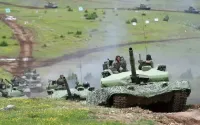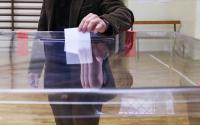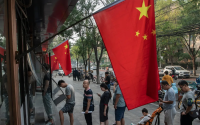December 2, 2002
Mustafa Koç on his nation's future in Europe
Turkey received a wake-up call on Nov. 8 in the form of a tough statement from former French President Valéry Giscard d'Estaing, the elder statesman in charge of charting Europe's constitutional future. "Turkey is not a European country," declared Giscard, just days after Turkey witnessed a landslide election victory by a moderate Islamist party committed to working for membership in the European Union. Opening up negotiations, said Giscard, "would be the end of the European Union."Turkey is determined that Giscard won't have the final word. Recep Tayyip Erdogan, leader of the governing Justice & Development Party (AKP), is touring Europe to argue that Turkey should receive a membership timetable at the upcoming European Union Summit in Copenhagen on Dec. 12-13. That's also a main goal of the country's business groups. European Regional Editor John Rossant spoke about these issues with a leading Turkish industrialist, Mustafa Koç, vice-chairman of the country's largest manufacturing groups, $9 billion Koç Holding.Q:How do you react to Giscard's statement that Turkish membership would spell the end of the EU?A: The statement was very unfortunate. It put EU members in a corner since they weren't expecting something like this. Giscard's views are those of an older generation of Europeans. They should be contrasted with the very positive comments in the past few days by [Italian Prime Minister Silvio] Berlusconi, [Spanish Prime Minister José María] Aznar, and others. They are much more representative of modern European attitudes.Plus, in a very real sense, the question of Turkey in Europe is a moot one: We're already there. We've been members of various European institutions for years. We've had full customs union with Europe since 1996. Koç companies are allied with groups such as Fiat, UniCredito, and Allianz. We did a little research of our own, for example, and discovered that there are over 60,000 Turkish-owned companies in Germany alone, from very small concerns to big textile groups.Q:Are you concerned about a reaction in Turkey if it is denied EU membership?A: Of course, it will be a disappointment if the European Union abandons a relationship that began 40 years ago. [But] from a strictly business point of view, we're already beyond Europe, with our operations in Russia and, like other Turkish groups, we are rapidly expanding regionally. We'll go wherever the opportunities are.Q:Aren't you worried, though, that Turkey's position as a manufacturing base for the EU could be hurt if relations turn sour?A: The amount of foreign direct investment in Turkey is small compared with Poland or Hungary. It has been averaging about $1 billion a year for several years now. There's a reason: chronic high inflation, our big bureaucracy, and frequent changes in government. But the fact that we now have comprehensive economic reforms in place, declining inflation, and a stable government will sharply influence this. A lot more investment will be attracted.The Turkish service sector will also be attractive--in tourism, information technology, financial markets. And Turkey can be a major export base to third countries in Central Asia and elsewhere. Ford Motor Co.'s recent $750 million investment in commercial vehicle manufacturing here is entirely export-oriented.Plus, I'm optimistic that there is light at the end of the tunnel. There is a great deal of pent-up demand here from the last two years [of economic crisis]. With inflation down and interest rates dropping immediately after the [Nov. 3] elections, the foundations have been laid for strong, sustainable growth.Q:Are you confident that the AKP government will be able to effectively promote Turkish membership in the EU?A: The fact that there are some new faces and a new generation of first-time MPs is positive. Also, the decision to reduce the number of ministries from 40 to 25 is a very good sign. The new government is certainly committed to EU membership. Things will be much easier to accomplish now, with a single-party government.Q:How worried are you about the potential for conflict in Iraq, one of your neighbors?A: During the last crisis [the 1991-92 Persian Gulf War] we were promised a lot of things [in terms of economic aid to make up for the loss of Iraqi trade], and nothing happened. We were Iraq's natural trading partner and one of its largest. Once the embargo is lifted, it won't take very long for Turkish companies to resume the role they once had. We are going to get a good chunk of Iraqi reconstruction work. We'll be one of the key players.
http://www.businessweek.com:/print/magazine/content/02_48/b3810177.htm?gb






